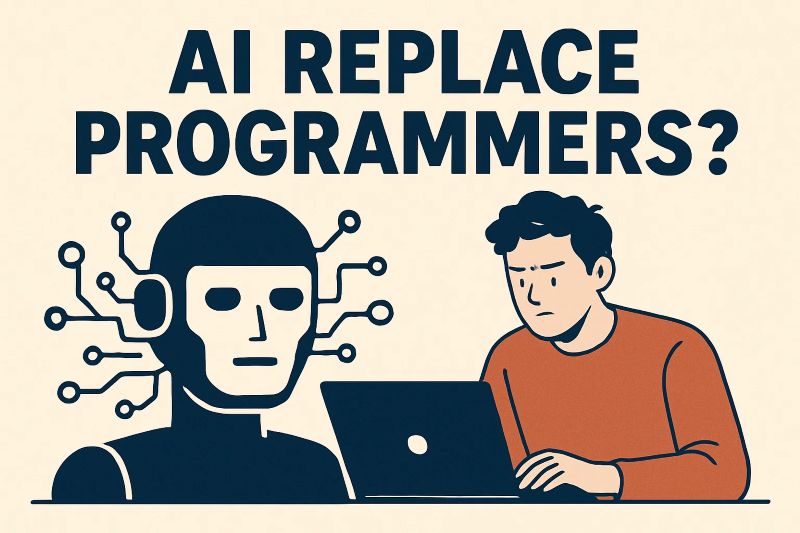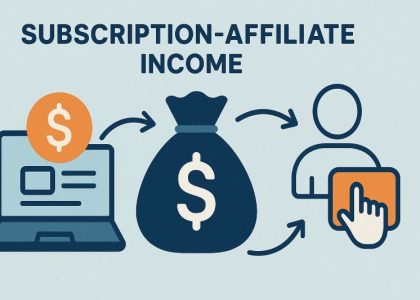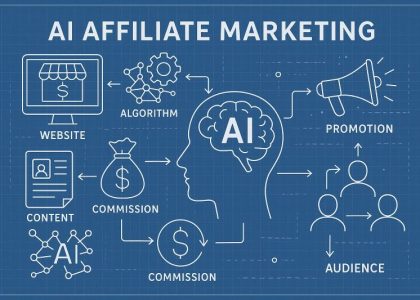Artificial Intelligence (AI) has made its way into almost every industry, and software development is no exception. From writing code snippets to debugging complex programs, AI-powered tools are changing the way developers work. But this rapid growth raises a critical question: Will AI replace programmers, or will it simply reshape the future of coding?
The answer is not as simple as “yes” or “no.” Instead, the future of programming lies in a collaboration between humans and machines, where Artificial Intelligencebecomes an assistant rather than a replacement.
How AI is Changing Programming
AI is already playing a major role in modern coding. Popular tools like GitHub Copilot, ChatGPT, and Tabnine help developers write code faster, detect bugs, and suggest solutions. This shift is driven by:
- Code Autocompletion – Artificial Intelligence suggests code as developers type, reducing time spent on repetitive tasks.
- Debugging Assistance – Artificial Intelligence tools can identify and fix errors more efficiently than manual reviews.
- Code Generation – Developers can describe requirements in plain language, and Artificial Intelligence generates code automatically.
- Learning Support – Beginners can rely on Artificial Intelligence to understand programming concepts and improve their skills.
AI has clearly become a productivity booster, but that doesn’t mean it will take over the role of human programmers entirely.
Can AI Really Replace Programmers?
While AI can handle many coding tasks, replacing programmers completely is highly unlikely. Here’s why:
1. Creativity and Problem-Solving
Programming is not just about writing code. It’s about solving problems, designing systems, and thinking creatively. Artificial Intelligence can generate solutions, but it struggles with the contextual understanding that human developers bring.
2. Complex Decision-Making
Software projects often involve trade-offs, such as balancing performance, cost, and security. These decisions require human judgment that Artificial Intelligence cannot fully replicate.
3. Understanding Business Needs
AI may write code, but it cannot sit with clients, gather requirements, and translate them into solutions with empathy and understanding. Human communication skills remain critical.
4. Ethics and Accountability
Who is responsible if Artificial Intelligence-generated code fails or introduces bias? Accountability lies with developers, making human oversight essential.
5. Constantly Evolving Tech
Programming languages, frameworks, and technologies evolve rapidly. Artificial Intelligence needs human programmers to train, guide, and adapt it to new trends.
The Future: Collaboration Between AI and Developers
Instead of fearing replacement, developers should embrace AI as a powerful collaborator. The future of coding will likely look like this:
- AI as a Coding Assistant – Helping with repetitive tasks, bug fixes, and suggestions.
- Developers as Problem-Solvers – Focusing on system design, architecture, and innovation.
- Faster Development Cycles – Artificial Intelligence will speed up coding, testing, and deployment.
- New Skills in Demand – Developers will need to learn how to work with AI tools and leverage them effectively.
- More Accessible Programming – Artificial Intelligence will lower the entry barrier, enabling more people to build software with minimal coding knowledge.
How Programmers Can Stay Ahead
To thrive in the AI-powered future, developers should focus on:
- Strengthening Problem-Solving Skills – Critical thinking will always be valuable.
- Learning AI and ML Concepts – Understanding how Artificial Intelligence works gives developers an edge.
- Mastering System Design – Building scalable and secure systems requires human expertise.
- Adapting to New Tools – Embracing Artificial Intelligence-powered coding assistants will make developers more efficient.
- Improving Soft Skills – Communication, teamwork, and client interaction cannot be automated.
Final Thoughts
AI will not replace programmers but will reshape the future of coding. Developers who adapt, learn, and collaborate with AI will thrive, while those who resist may struggle. The future of programming is not Artificial Intelligence versus humans, but Artificial Intelligence with humans — where technology enhances human creativity rather than replacing it.
By embracing this partnership, the software industry can achieve faster development, smarter solutions, and limitless innovation.





